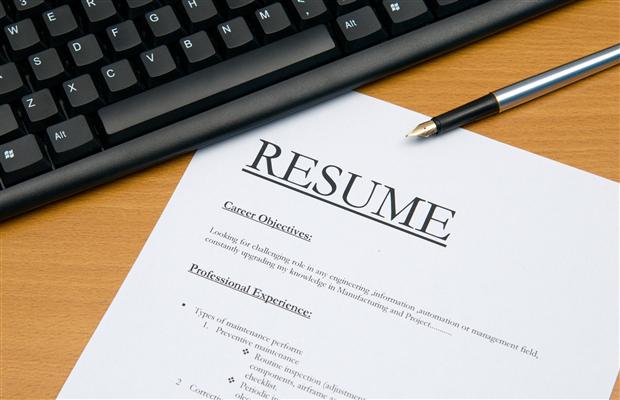Davao City is known to be the largest and one of the most livable cities in Asia, and It is one of the most successful business central city in Mindanao. Davao City alone has around 23 Colleges and Universities that produce approximately 10,000 to 15,000 graduate students from small colleges to big universities annually. Therefore, this number of students coming from different courses will soon look for jobs that suit their qualifications. During this first quarter of the year, DOLE and PESO will be working with Colleges and Universities in conducting job fairs for these graduating students to be deployed and hopefully get the careers that are apt for them. Given the volume of job seekers from these number of graduates, competition will be stiff and these newly grads has to really step up to be in the game of the real world.
The first thing a job seeker must have is the actual key to the real world; this “Key” is composed of two powerful tools to make a big first impression. These tools are, 1) a concise cover letter and, 2) an effective resume. First of all, most schools and universities have several programs or workshops on how to prepare these tools; however, most of these are based on theoretical orthodox and most often it is not based on a recruiter’s perspective thus, making a cliché of cover letters and resumes that will waste not only the applicant’s effort but the recruiter’s valuable time. Writing a cover letter is not just giving a brief summary of an applicant’s intention to apply and its qualifications, but it has to make an impressive impact for the recruiter to be interested to further review the applicant’s attached resume. The Second tool which is the RESUME, must also be equally impressive not only on its contents but in presentation format as well, giving the job seeker an advantage to receive a callback for a scheduled job interview.
Here are some helpful tips to help these fresh young talents of Davao on how to properly write a nice and concise cover letter; and an impressive and effective resume.
Cover Letters
The first rule in writing a cover letter is to give enough information to interest the reader, but don’t overwhelm. Give only necessary information that is related to your objective – To APPLY for a Job.
Second rule is to research about the company, know everything about the company. Its Mission and Vision, their type of industry and business, address and contact number and most especially the name of the person to whom an applicant should address the cover letter. All these information will come in handy once an applicant is in a job interview.
Third rule is to make sure that it has to mention or answer a Job Ad if an applicant thinks he has at least 50% of the qualifications, skill or background that the ad requires. These means making sure that you connect your qualifications and relate them to the ads requirements. If an applicant is referred by somebody, it would be necessary to also mention the name and details of that particular person.
Now that we have the Rules covered, let us proceed in making sure that the cover letter is followed properly. First, ensure that on the top left side of the letter the applicants name and address is properly typed/written (applicants’ address, city, state, zip, and telephone number). Three spaces below that, the current date should be typed/written; give another three spaces down, and type the name, job title, company, address, city, state, and zip of person an applicant is writing to. Then three spaces below these information; an applicant should type in there greetings making sure that they address it properly to the receiver by using the proper salutation and the receiver’s family name, followed by a colon. These Initial formats have to be left aligned to have a formal and corporate impression to the reader.
The first paragraph of the cover letter should contain basic and pertinent information about the applicant. In addition, knowing how an applicant knew about the company and its job vacancies will create an impression that the applicant is persistent in landing a job. The applicant should also mention what they want or their objective in a brief but direct to the point manner. Furthermore, in this paragraph an applicant must mention the enclosure of their resume for the recruiting officer’s perusal.
The second paragraph should be solely dedicated discussing an applicant’s qualifications for newly graduates or a concise overview of work history and skills that will help the applicant perform the job he or she is applying for. Be mindful that we should not overwhelm the reader so information like dates of work covered are not necessary required, since that information will be included in the applicants resume. Making a brief, accurate and chronological run down of the applicants work history or qualification will be enough.
The third paragraph has to be equally impressive as the second paragraph, simply because this is where an applicant has to express and state their confidence in their skills and abilities and convince the reader that they have more to offer the company. An applicant may also use this paragraph to inform the reader on how he/she can be contacted, just make sure all possible contact medium is stated such as Landline number, Mobile number, and Email address.
The fourth and last paragraph, an applicant must focus on expressing his/her appreciation for giving time in reading his/her letter. An applicant may also express his/ her hope of hearing back from the recipient of the letter.
Finally, the letter should have a sincere yet professional closing remark, followed by a comma. Four spaces bellow it the applicant should write his/her complete name. Make sure to proof read everything before printing the letter, then use the space between the closing remarks and the applicant’s name for the applicant’s signature.
Resume
When you are writing your resume, it is important to keep in mind the purpose of the resume. The resume is meant to spark interest in you as a candidate. Your resume writing should be with the intent to get an interview, not a job offer. It is not meant to list every single course, skill or accomplishment you have. Remember, resumes get interviews, not jobs.
Create a positive first impression. This is done by showcasing your communication skills and making the resume easy to read. The resume should be succinct and easy to follow. Tell who you are. When you are writing your resume, you are telling the reader who you are and why they should consider you for a position.
RESUME is your KEY to open the doors of your professional life. Consider it as your tag price to sell yourself to the industry you plan to penetrate.
When writing a resume, an applicant should determine their objective – which is to get a scheduled interview and not to land a job right away. You should strive to be clear and concise, Use BULLET POINTS in the body of your resume to make it scanable – use action words, highlight your STRENGTHS based on your skills and competencies, match the NEEDS of the hiring company, and be POSITIVE – showcase your communication skills; it should tell the recruiter who you are and why they should consider you for the position you are applying for. The key here is making your resume simple and not too fancy with colours, design fonts and too wordy. Avoid too much Italic or Bold Fonts (only use these to highlight or emphasize titles and sections of your resume). Bear in mind that your resume should focus on your skills; you must use action words to define the responsibilities of your job-related experience. It should be easy to understand and pleasant to read, which means it should be visually powerful and free of gimmicks (like fancy colored papers, fragrant papers, too much borders, tables and graphs, etc.). Language is grammatically correct and spellings are all checked. It should be formal style, one to two pages standard and/or three pages the most. Most importantly, your resume should not include inappropriate personal information (religion, sexual preferences, family background etc.) In addition, It must be 100% accurate and truthful, must be error free and produces in a computer.
The following are the information one must include in an effective resume:
- Identify Yourself – This should include your First Name, Middle Name, Last Name, Address, most importantly your Contact Numbers and Date of Birth. A nice decent and professional 2 x2 picture is encouraged. DO NOT USE pictures taken by a web cam or cellphone remember this is your resume and not your FACEBOOK or TWITTER accounts.
- Objective – States the work type and not the actual job post that you are seeking. This should be professional, tailor fit to the company’s culture and the position you are seeking. Do not make this section too narrow but make sure it’s brief and direct to the point.
- Education – This section should identify your training by listing the university(ies) and colleges attended with degree(s) conferred, major and GPA.
- Work or Professional Experience – Start from the most recent work experience, provide details (such as start and end dates, department where you were assigned, office address) and areas of expertise (duties and responsibilities that you have done in that particular job). Project experience can be listed if you don’t have any formal work experience, e.g. Internships. Also mention the position and company where you had acquired this work experience.
- Skills -These can be technical or career skills. It is often placed after the objective. The skills you’ll write should be the ones you are most proficient about.
- Accomplishments – This highlights the specific areas you have excelled including leadership activities, memberships, and honours or awards.
- Reference Contacts – This includes the names of people whom the company can contact as your character references. It should include the full name of the contact person, current company they are working for, their position and their contact details. Some resume may have this information as “upon request” basis. But to truly impress a recruiter, it would be wiser and practical to have this information handy and available in your resume.
Now that these valuable knowledge is shared, Davao’s future professionals are one step closer to be geared up to face the real world, and hopefully find and land a job, and be successful professionals in the years to come.
Next issue I will share you how to properly prepare and dress well for a job interview and make sure to ACE in it. Always remember we only got one chance to make a big first impression.








